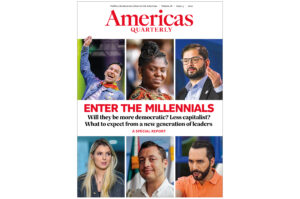This article is adapted from AQ’s special report on millennials in politics
The time has come for millennials and Gen Z to assume political leadership—and for my generation to move over and make space. This is critical if we want to engage young people and create an environment for civic involvement.
We have seen over the last 20 years almost two new generations of entrepreneurs emerge, paving the way for innovation, new ideas as well as a new style of leadership. They have built companies, created networks and encouraged others to do the same. Their innovation and drive empowered the next generation to think big and break down preexisting barriers to success. This has also stirred passion, creating a cycle of even more innovation and engagement. They foster the hope that anyone can help create a unicorn or find a social development concept that can change the world. They are inspirational role models.
But to date, that has not translated into broad-based civic engagement or political leadership renewal among the same generation. Latin America does have two millennial presidents: President Gabriel Boric in Chile and President Nayib Bukele in El Salvador, which is a start. But we need more. We need mayors, governors, legislators and civic leaders to truly drive change. This is critical if countries are going to meet the expectations of coming generations. And of course, more women and diverse minorities are also fundamental. Millennials and Gen Z want leaders who reflect their thinking and values.
Just as successful entrepreneurs have become role models, that same process must occur in the civic and political arena. So why don’t more millennials engage in political leadership? Maybe they do not believe they can make a difference or have an impact. That would be very sad, as millennial and Gen Z political leadership is exactly what is required to make their communities, their countries and the world better.









